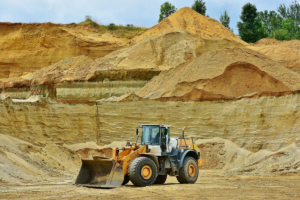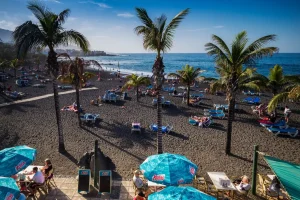
The Navajo Country has endorsed crisis regulation intended to reinforce an tribal law that controls the transportation of radioactive material across the biggest Local American reservation in the U.S.
The move is in light of the recovery of a uranium mining activity only south of the Fantastic Gully that has drawn a lot of analysis from hippies and Local American clans in the district.
Navajo President Buu Nygren marked the regulation Thursday as talks go on among ancestral authorities and Energy Fills Inc. to make an arrangement that would address worries about any likely dangers to the general population or the climate.
The refreshed regulation calls for more development warning of plans to send uranium metal from the Pinyon Plain Mine in northern Arizona to a factory in Utah. The installment of transport charges and the documenting of crisis readiness designs additionally are among the orders.
The clan in 2005 restricted uranium mining across the rambling reservation, highlighting the excruciating tradition of pollution, sickness and demise that was abandoned by the extraction of almost 30 millions tons of the metal during The Second Great War and the Virus War.
Regardless of that boycott, ancestral administrators in 2012 avoided disallowing the transportation of uranium across Navajo lands. All things considered, they announced the clan’s overall resistance to getting mineral across ancestral terrains and embraced guidelines to safeguard human wellbeing and the climate by requiring notice and monetary affirmation, in addition to other things.
Navajo pioneers said the time had come to reinforce that regulation and require prior warning of shipments by Energy Fills as the organization slopes up tasks.
Nygren expressed notice under the current regulation didn’t occur when Energy Energizes delivered its initial two heaps of mineral in July and his endeavors to have ancestral police capture the semi-trucks were past the point of no return.
“The motivation behind this regulation is to accommodate the security, wellbeing and wellbeing of the Navajo Country and its kin and our valuable assets like our water,” he said in a letter saying thanks to legislators for focusing on the issue.
Navajo Head legal officer Ethel Branch said continuous discussions with the organization are pointed toward ensuring any vehicle of the mineral is finished in a dependable manner. She likewise made references to the tradition of uranium mining in the area and said remediation work still can’t seem to be finished in numerous areas.
“That is essential for why the (Navajo) Country expected to answer so emphatically here, to push back and guarantee that our local area doesn’t keep on getting excessively troubled with radiation and uranium-based waste and tainting,” she said in an explanation.
Energy Fills said Thursday it is hopeful about agreeing with the Navajo Country that will make room for shipments to continue. The organization additionally said the conversations have been predictable with the arrangements of the changed ancestral regulation.
“By the day’s end, we believe Navajo initiative and Navajo residents should be OK with current uranium mineral vehicle and to comprehend that it represents no gamble to human wellbeing or the climate,” said Curtis Moore, an organization representative. “What’s more, we will blow away pertinent government and state regulations to get that going.”
The Navajo regulation makes reference to U.S. guidelines that administer the transportation of radioactive materials. By and large, those rules call for additional precautionary measures when improved uranium, spent atomic fuel or profoundly radioactive waste is involved. Uranium mineral falls into an alternate class.
The semi-trucks that will convey metal are furnished with thick plastic covers that are tight-fitting and water confirmation to restrict dust from getting away or downpour from leaking in.
Under the Navajo regulation, the trucks can be investigated, and shipments during ancestral fairs along the assigned course would be precluded.
In the event that an organization disregarded the guidelines, the Navajo Country Natural Security Organization could give a request for consistence alongside punishments. The Navajo head legal officer could likewise look for an impermanent controlling request or directive through ancestral court in the event that the law were disregarded.







